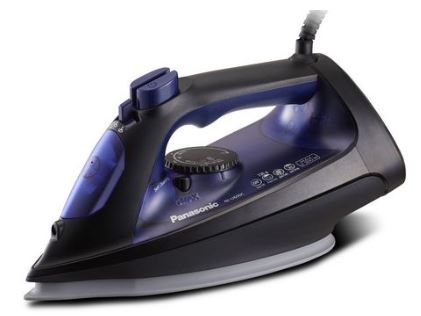The use of distilled water in irons is a topic of debate among users and manufacturers. Some manufacturers do not recommend using distilled water, and I have even seen claims stating that it should not be used, but this seems to be a misleading marketing tactic. In reality, distilled water is simply water without impurities and does not harm your iron. In fact, using distilled water can help prevent limescale buildup in your iron, which can extend its lifespan. If limescale doesn’t accumulate in your iron, its longevity primarily depends on the quality of the materials used, particularly the seals in the water chamber. With good quality materials, an iron can last for decades.
Using Distilled Water in Irons: Myths and Facts
Here’s what you should know about using distilled water in irons:
- Boiling Point Deviation: Distilled water has a slightly higher boiling point than tap water due to its lack of minerals. However, the difference (0.2-0.5°C) is negligible because irons operate at much higher temperatures (150-200°C or 300-400°F). Therefore, this concern is unfounded.
- Slight Acidity: Some believe distilled water is more acidic. While there may be a slight increase in acidity, it is so minimal that it can be considered negligible.
- Mineral Extraction Myth: A common misconception is that distilled water leaches minerals from the iron’s soleplate. However, there is no scientific evidence to support this claim; it appears to be a myth that originated on the internet.
- Concerns About Leaks: Some people worry that distilled water can cause leaks. However, the viscosity of distilled water is identical to that of tap water, so these concerns are baseless. It’s important to note that scale buildup can block not only potential leaks but also the steam supply.
In conclusion, many fears surrounding the use of distilled water in irons lack scientific backing.
How Steam Irons Work and the Importance of Water Quality
Despite the wide variety of steam irons available today, their basic operating principle has remained largely unchanged for over 50 years.
Steam irons have a water reservoir that supplies water to the heated soleplate. When water reaches the soleplate, it turns into steam and is released through small holes. Over time, these holes and internal channels can become clogged with limescale, reducing the iron’s performance and requiring cleaning.
To prevent limescale buildup, modern irons incorporate various technologies. Special coatings on the soleplate prevent limescale from sticking, while salt absorber cartridges help neutralize minerals. Many irons also feature self-cleaning modes: the iron heats to maximum temperature, a large volume of water is introduced, and an intense steam burst breaks off limescale deposits, often accompanied by a characteristic crackling sound.
Since limescale affects all steam irons, using soft water with minimal salt and mineral content is the best way to maintain your iron’s efficiency and prolong its lifespan.






